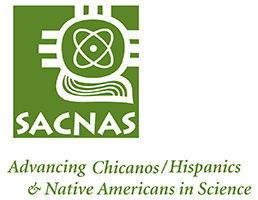 |
| SOME GROUPS HAVE BEEN MARCHING ON THE CAPITOL FOR HALF A CENTURY |
Science for the People is a left-wing organization that emerged from the antiwar culture of the United States in the 1970s. There have been various attempts to revive the group in different forms, including one effort in 2002 and another that has emerged since 2014.
... Science for the People generated much controversy in the 1970s for the radical tactics of some of its members. Herb Fox, one of its founding members, wrote:
I was a founder in 1969-70 of Science for the People. It originated in the coming together of the then one-year-old Scientists and Engineers for Social and Political Action (SESPA) and a group of Harvard and MIT students who had been invited to participate in a session of the AAAS annual meeting. SESPA itself was formed in the aftermath of a struggle... to get the APS to take a stand against the Vietnam war....The first issue of Science for the People (1970) was produced and edited by me with a comrade who is now my wife.
Subsequent issues were produced by ever changing editorial collectives. Over its first few years SFP ...became an outlet for critical discussion of the misuse of science. In the process it became identified with well-known critical academic scientists such as Stephen Jay Gould and Richard Lewontin.
Three-Day Conference Exploring Progressive Legacy of ‘Science for the People’ Starts April 11 2014
AMHERST, Mass. –
Social Thought and Political Economy (STPEC) program at the University of Massachusetts Amherst will bring together members of Science for the People (SftP) from the 1970s and 1980s as part of a April 11-13 conference on the history of the organization and its approach to enduring questions of power, ideology and democracy in science.
The conference, “Science for the People: The 1970s and Today” is being held all weekend at locations throughout the campus. ... With a Marxist analysis and non-hierarchical governing structure, SftP tackled the militarization of scientific research and the corporate control of research agendas. Its members opposed racism, sexism, and classism in science and sought to mobilize people working in scientific fields to become active in agitating....
STPEC director Sigrid Schmalzer noted ...
“For more than 40 years, our program has provided undergraduates at UMass Amherst with opportunities for interdisciplinary investigation of social, political, and economic power structures, and for active engagement on campus and in the community,” she said. “...
Conference events will include a keynote lecture by John Vandermeer, a founding member of SftP and currently distinguished professor of ecology and evolutionary biology at the University of Michigan; plenary panels on the significance of Science for the People, featuring former SftP members, historians, and sociologists; and issue-oriented panels on the militarization of science, food and agriculture, climate change and energy policy, women and science, myths of race and gender, science and ideology, ...
The closing plenary, “Science for the People 2.0,” will include a presentation by UC Berkeley scientist Ignacio Chapela. Chapela is a leader in the fight against the agricultural use of genetically modified organisms
Earth Day - April 22, 2017





































